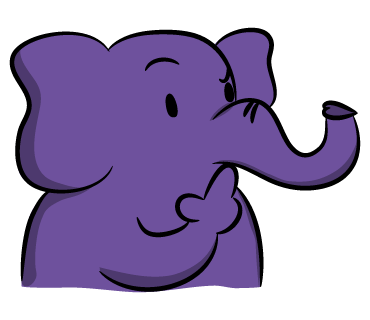- เมษายน พ.ศ. ๒๔๘๓
- พฤษภาคม พ.ศ. ๒๔๘๓
- มิถุนายน พ.ศ. ๒๔๘๓
- กรกฎาคม พ.ศ. ๒๔๘๓
- สิงหาคม พ.ศ. ๒๔๘๓
- กันยายน พ.ศ. ๒๔๘๓
- ตุลาคม พ.ศ. ๒๔๘๓
- พฤศจิกายน พ.ศ. ๒๔๘๓
- ธันวาคม พ.ศ. ๒๔๘๓
- มกราคม พ.ศ. ๒๔๘๔
- กุมภาพันธ์ พ.ศ. ๒๔๘๔
- มีนาคม พ.ศ. ๒๔๘๔
- เมษายน พ.ศ. ๒๔๘๔
- พฤษภาคม พ.ศ. ๒๔๘๔
- มิถุนายน พ.ศ. ๒๔๘๔
- กรกฎาคม พ.ศ. ๒๔๘๔
- สิงหาคม พ.ศ. ๒๔๘๔
- ภาคผนวก
- ๖ ธันวาคม พ.ศ. ๒๔๕๘
- ๒๙ มิถุนายน พ.ศ. ๒๔๗๐ น
- ๓๐ มิถุนายน พ.ศ. ๒๔๗๐ ดร
- ๒ กรกฎาคม พ.ศ. ๒๔๗๐ น
- ๕ กรกฎาคม พ.ศ. ๒๔๗๐ น
- ๒๔ สิงหาคม พ.ศ. ๒๔๗๒ น
- ๒ ตุลาคม พ.ศ. ๒๔๗๒ น
- ๔ พฤศจิกายน พ.ศ. ๒๔๗๒ น
- ๗ พฤศจิกายน พ.ศ. ๒๔๗๒ น
- ๙ ตุลาคม พ.ศ. ๒๔๗๕ น
- ๒๘ เมษายน พ.ศ. ๒๔๗๗ น
- ๒๙ มิถุนายน พ.ศ. ๒๔๗๗ ปสศ
- ๓ มกราคม พ.ศ. ๒๔๗๘ น
- ๒๑ ธันวาคม พ.ศ. ๒๔๗๘ ยส
- ๒๕ ธันวาคม พ.ศ. ๒๔๗๘ ว
- ๑๑ กุมภาพันธ์ พ.ศ. ๒๔๗๘ ว
- ๙ เมษายน พ.ศ. ๒๔๗๙
- ๑๒ เมษายน พ.ศ. ๒๔๗๘ ยส
- ๑๘ พฤศจิกายน พ.ศ. ๒๔๘๓ ว
- ผู้พูดกับผู้ฟัง
- คำแบบ
- เรื่องจำนวน
๙ เมษายน พ.ศ. ๒๔๗๙
กระทรวงการต่างประเทศ
๙ เมษายน ๒๔๗๙
เรียน เจ้าคุณ ทราบ
ท่านที่ปรึกษาได้มีลายพระหัตถ์ถึงเจ้าคุณอินทรมนตรี เรื่องคำว่า ฉัน และมีรับสั่งให้ส่งสำเนามาให้เจ้าคุณทราบ ผมจึงขอส่งมาพร้อมกับจดหมายนี้ เมื่อเจ้าคุณเสร็จธุระแล้วขอได้โปรดส่งคืน เพราะทางกองที่ปรึกษามีอยู่เพียงสำเนาเดียว
ขอแสดงความนับถืออย่างสูง
<ทวยเทพเทวกุล>
----------------------------
(COPY)
Ministry of Foreign Affairs,
Saranromya Palace,
9th April, 1936.
My dear Chao Khun,
It was so kind of you to call on Siamese New Year’s day, and I wish to thank you most cordially.
That reminds me that I have left one of your letter unanswered. It was due to the extra pressure of work towards the end of the Assembly session. I had not been idle, however, so far as you are concerned. I have been pursuing my researches into the word ฉัน.
I am sure Prince Naris will not mind your making use of his remarks. So far as my remarks are concerned, you are quite welcome to make any use of them you like.
As to the present use of the word, both in its simple and combined forms, I quite agree with Prince Naris. As to the origin, however, I cannot follow Prince Naris on one point, namely that อีฉัน was the original form and ดีฉัน a variation from that form. I think on the contrary that อีฉัน is a corruption from ดีฉัน. I admit that อี was not originally a derogatory term, and I share your disapproval of the modern prudish way of calling นกอีแอ่น นกนางแอ่น. But the fact still remains that in common parlance อี has had a derogatory connotation for a long time. Nor is Prince Naris’ citation of the language of old Siamese law convincing to me, for the corresponding feminine designation to อ้าย for the eldest daughter was เอื้อย and not อี; and the second daughter was called อี่ and not อี.
Pursuing further the line of thought I have already indicated to you, I have come to believe that ฉัน and ดิฉัน should come from the Mon-Khmer group. On re-examining Halliday Mon-English Dictionary, I find that “dit”, pronounced “doit”, means a slave and “Ćhòn kabòn, chòn bón” means to be acquainted with, familiar, to become intimate with, to be friendly; to be dependent; to make research. I have not been able to find a Mon scholar to enlighten me whether Ćhòn alone is ever used instead of “Ćhòn kabòn, ćhòn bón ”. A Mon priest at Wat Thongpu tells me that “Ćhòn bón ” means กิจที่ทำ เอาใจใส่, but he did not know that “Ćhòn” alone was used in the Mon language.
หม่อมฉัน I consider to be an abridged form of กระหม่อมฉัน and that in turn a shorter form of เกล้ากระหม่อมฉัน. Therefore หม่อม or กระหม่อม here means head or top of the head, whereas หม่อม meaning the wife of a prince or a grandee, as also in the expressions หม่อมเจ้า, หม่อมราชวงศ์, หม่อมหลวง, would seem to me to come from the Khmer กรํมม which means young persons, especially young woman.
I shall be greatly interested to read through your paper when it is already.
Yours very sincerely,
(Signed) V.
His Excellency
Phya Indra Montri,
etc., etc., etc.,
Bangkok.

